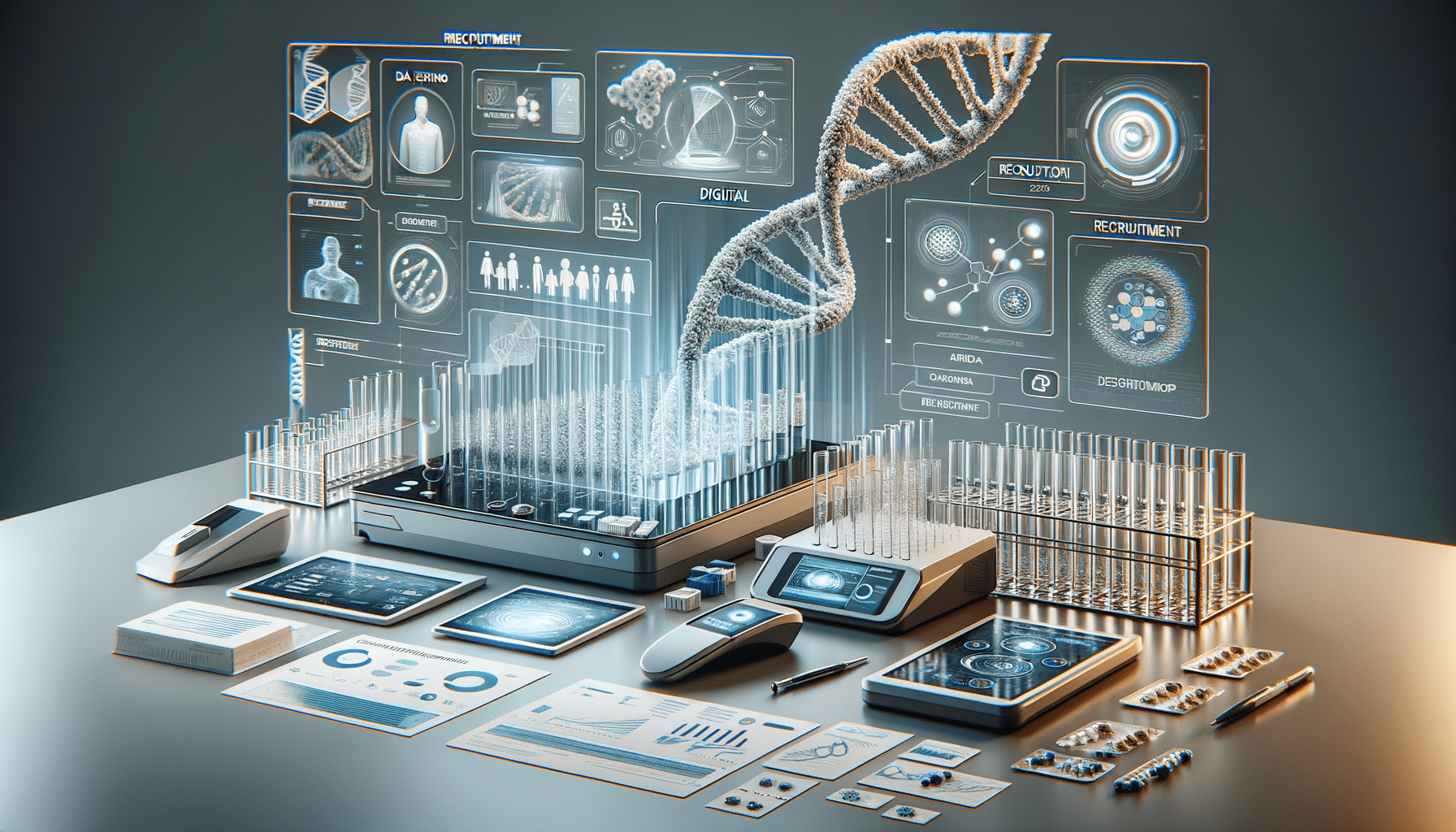Organizing DNA Testing and Recruitment Workflows Digitally
In labs and clinics across the U.S., DNA testing plays a growing role in both healthcare and hiring. To manage this complexity, many teams are turning to specialized platforms—like DNA management systems, applicant tracking software, and integrated EHR tools—that help keep sensitive data organized, accessible, and secure.

Understanding the Basics of DNA Testing
DNA testing has revolutionized the fields of medicine, forensic science, and genealogy. It involves analyzing the genetic material in cells to provide insights into an individual’s ancestry, health risks, and biological relationships. The process typically requires a sample of cells, often obtained through a cheek swab or blood sample, which is then analyzed in a laboratory setting. The results can reveal a wide range of information, from potential hereditary diseases to ancestral origins.
There are several types of DNA tests, each serving a distinct purpose. For instance, genealogical DNA tests are popular for tracing family lineage and understanding ethnic backgrounds. In contrast, medical DNA tests can identify genetic mutations that might predispose individuals to specific health conditions. The precision of DNA testing has made it an invaluable tool in both personal and professional contexts.
However, the complexity of genetic data requires careful handling and interpretation. Laboratories must adhere to strict protocols to ensure accuracy and maintain privacy. As the demand for DNA testing grows, so does the need for robust systems to manage the data efficiently.
The Role of DNA Testing in Healthcare
In the healthcare sector, DNA testing is paving the way for personalized medicine. By understanding a patient’s genetic makeup, healthcare providers can tailor treatments to the individual’s unique genetic profile. This approach not only enhances the effectiveness of treatments but also minimizes potential side effects.
For example, pharmacogenomics, a field that studies how genes affect a person’s response to drugs, relies heavily on DNA testing. By analyzing genetic variations, doctors can predict how a patient will respond to a particular medication, allowing for more precise prescriptions. This can significantly improve patient outcomes and reduce the trial-and-error approach often seen in traditional medicine.
Moreover, DNA testing plays a crucial role in early disease detection. Genetic screenings can identify individuals at risk for certain conditions, such as breast cancer or cystic fibrosis, enabling preventative measures or early interventions. This proactive approach can save lives and reduce healthcare costs by catching diseases before they progress.
DNA Testing in Forensics and Legal Applications
DNA testing is a cornerstone of modern forensic science. It provides a powerful tool for solving crimes by linking suspects to crime scenes through genetic evidence. The reliability of DNA testing in forensic investigations has made it a critical component of the criminal justice system.
Forensic DNA analysis involves comparing DNA samples collected from crime scenes with those of suspects or databases of known offenders. This method has been instrumental in solving cold cases and exonerating individuals wrongfully convicted of crimes. The ability to accurately match DNA profiles has transformed how law enforcement agencies approach investigations.
Beyond criminal cases, DNA testing is also used in legal contexts such as paternity disputes and immigration cases. By establishing biological relationships, DNA testing provides definitive evidence that can be used in court proceedings. However, the use of DNA testing in legal scenarios requires careful consideration of ethical and privacy issues, as the implications of revealing genetic information can be profound.
Ethical Considerations and Privacy Concerns
As DNA testing becomes more widespread, ethical considerations and privacy concerns are increasingly coming to the forefront. The sensitive nature of genetic information necessitates stringent measures to protect individuals’ privacy and prevent misuse.
One of the primary concerns is the potential for genetic discrimination. There is a fear that employers or insurance companies might use genetic information to make decisions about hiring or coverage, respectively. To address this, many regions have enacted laws to prevent genetic discrimination and ensure that individuals’ genetic data is not used against them.
Additionally, the storage and sharing of genetic data raise important questions about consent and ownership. Individuals must be fully informed about how their genetic information will be used and who will have access to it. As DNA databases grow, it is crucial to establish clear guidelines and robust security measures to protect this sensitive information from unauthorized access or breaches.
The Future of DNA Testing: Innovations and Implications
The future of DNA testing holds exciting possibilities, with advancements in technology poised to expand its applications further. One area of significant development is the integration of artificial intelligence and machine learning with DNA analysis, which could enhance the speed and accuracy of genetic testing.
Moreover, the decreasing cost of DNA sequencing is making it more accessible to the general public. This democratization of genetic testing could lead to a greater understanding of human genetics and its implications for health and ancestry. As more individuals undergo DNA testing, the resulting data could drive research and lead to new discoveries in genetics and personalized medicine.
However, with these advancements come challenges. The ethical and privacy concerns associated with DNA testing will need to be continually addressed to ensure that individuals’ rights are protected. As the technology evolves, so too must the frameworks that govern its use, ensuring that the benefits of DNA testing are realized without compromising ethical standards.